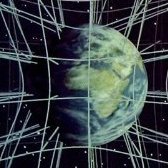Leaderboard
Popular Content
Showing content with the highest reputation on 01/24/21 in all areas
-
We can all agree that violence on either side is wrong and should be avoided. What we seemingly cannot agree upon is why so many feel the need to engage in whataboutism and mention a protest in favor of following our laws done in Portland with an insurrection on our democracy itself trying to dismantle our laws in Washington DC. Whether intentionally or not, this suggests an equivalence between the events which is false and which only distracts us from dealing with each separately, appropriately, and in accordance with our laws. Person A: Climate change is a major problem. Person B: What about covid?! That’s a problem, too. Me: Both are. They’re not equivalent. They’re not mutually exclusive. We must deal with both at once. Walk and chew bubble gum. Simply replace climate and covid with DC and Portland. This isn’t exactly rocket science.4 points
-
The improvement comes from spin squeezing; one partner of the entanglement has much less uncertainty in a particular state than the other, and this gets them below the standard quantum limit. They tout the improvement in the measurement but not the actual stability, which is more than an order of magnitude worse than the better optical frequency standards. That’s not to say that they won’t get there, though. https://arxiv.org/pdf/2006.07501.pdf I’d put my money on the latter being closer to the truth2 points
-
Entanglement conveys no information. The sources of this pop article seem not to know that. Saplakoglu writes: It just doesn't work like this. A pair of particles unmeasured are not meaningfully in any state at all. If measured, they're not entangled. Some logical fails follow: No, it is not at all like placing 100 coins with 50/50 mix. That implies a measurement already taken. It's more like having 100 unknown coins and measuring 99 of them gives zero clue as to what the last one will be. Entanglement is like slicing 100 coins in half and sending the 100 halves to Pluto. Now if you count the halves here on Earth, you know what the Pluto guy will count if he ever looks at them. Nevertheless, the Pluto guy will have no idea what the last one will be if he hasn't received a message from Earth about the expected totals. I'm saying that either this 'Vuletić and his team' are complete fools, or their suggestions are being completely misrepresented by this Saplakoglu pop-science article writer. What I suspect is going on is having 50 coins split in half and all put on the table. Then, without measuring any of them, you know ahead of time that it's a 50/50 split. Nobody is carrying any of the coins elsewhere, and somehow having them entangled in pairs like that makes some kind of measurement more stable on average, thus allowing construction of a better clock. I'm guessing. The author of the article doesn't seem to comprehend the concepts involved.2 points
-
Having taught math successfully in Junior High and High school I though I would have a lot of great examples for you-- but on further reflection realized my best ones were not something that could be generalized. I had the greatest success when I could connect the math lesson to the students' experiences. For example, in my rural area the vast majority of the students have experience with guns and many also have reloaders in their families (people who make their own ammunition). When I first tried to teach statistics I got blank looks from many students, So that weekend I took my test equipment out to the rifle range and measured velocities of 10 rounds of ammo I had built. On Monday I put the data up on the screen and asked the students if the load I had developed was consistent enough for hunting. This lead to a successful lengthy discussion and the development of the idea of mean and standard deviation. The lesson I learned and applied from then on is this: The goal is not so much to make the students think differently, but rather to create a use for the math knowledge in a way that connects to their experiences. I can think back to lots of examples of good teaching tricks, but realize they are were specific to a certain student or group of students. Not much help to what you want.1 point
-
OK so I will try to discuss communication of Mathematics, rather than principle of Mathematics. I can't see where you have mentioned any basic Maths, computer code is hardly basic if it is indeed Maths at all. However I beg to disagree with your outright rejection of History. Perhaps your experience of History at school was of the sort "History is a list of dates of battles, deaths and treaties to be learned by heart and regurgitated for the examiner". History actually offers many lessons for those that care to peer into them. Not the least being concerning computer code. Coding languages have a very short lifetime; I have seen them come and go and stopped bothering to learn the new fashion decades ago now so I have little idea of the meaning of your example. The last serious program I wrote was PFortran TRIP (Trigonometric Intersection Program). British schools went through a phase of demanding that every child learn 'programming'. This mean resources were wasted on teaching first, different versions of BASIC, then PASCAL, then some early scripting. None of which are current today. History also tells us that the basic mathematical operation of counting is at least as old as writing, probably much older. Now schools used to teach using the old fashioned balance scales. Good schools would actually get the pupils to set up pretend shops acting as customers and shoperkeeps. They would weigh out amounts of materials, say potatoes or sand and also practice with pretend money. This allowed a method of counting by the custemr presenting say a half crown coin and the shopkeeper saying That's one and fivepence and then making up the one and fivepence to half a crown with coins to provide the change. Instant communication of arithmetic and fractions. For those who were a dunce at school arithmetic there was the joke, you say you can't do maths but you can still instantly recognise that you need a treble eighteen, double top and single nineteen to finish in a darts match when you are on 113! Would these be the sorts of examples you are looking for ?1 point
-
They won't. A neutron will collide elasticity with a nucleus and not destroy or otherwise 'damage' the nucleus. Don't go on belief, you should go on facts. Edit: As Sensi said in rare cases some emissions from the nucleus is possible. That is not typical.1 point
-
It is important to remember that this is only an analogy - it’s a pedagogical device that can be useful to illustrate certain aspects of certain spacetime geometries (it’s called the “waterfall analogy”), but it isn’t to be taken literally. You will find this analogy often used for black holes that carry angular momentum and/or electric charge. In actual fact though spacetime isn’t some kind of mechanical fluid, and it is not embedded into anything higher dimensional, so it doesn’t physically “flow” anywhere. The proper mathematical description of spacetime geometry doesn’t use such concepts. It’s just a visualisation aid.1 point
-
1 point
-
(7) does not follow from (6). The term in square brackets in (6) is symmetric in \( \alpha \) and \( \beta \), so (6) is satisfied by any arbitrary four-index tensor \( R_{\alpha\beta\gamma\delta} \) (not just the Riemann tensor) as long as it is antisymmetric in \( \alpha \) and \( \beta \). This is not surprising, since (6) is nothing more than a restatement of (4), which itself is nothing more than a statement that \( R \) is antisymmetric in its first two indices (true of the Riemann, but also of a great many other tensors). It certainly does not follow that all components of the Riemann tensor (or any other arbitrary four index tensor antisymmetric in its first two indices) are zero, as can be verified by (for example) calculating the Riemann tensor for the Schwarzschild metric and confirming that (6) is satisfied for at least one choice of \( \gamma \) and \( \delta \) for which at least some of the \( R_{\alpha\beta\gamma\delta} \) are non-zero. E.g: pick \( \gamma=r, \delta=t \). The non-zero \( R_{\alpha\beta r t} \) in (+---) signature Schwarzschild coordinates are \( R_{trrt}=2m/r^3 \) and \(R_{rtrt}=-2m/r^3 \). Thus (6) expands to \[ R_{trrt}(g^{t\mu}g^{r\nu}+g^{r\mu}g^{t\nu})+R_{rtrt}(g^{r\mu}g^{t\nu}+g^{t\mu}g^{r\nu})=\frac{2m}{r^3}(g^{t\mu}g^{r\nu}+g^{r\mu}g^{t\nu}-g^{r\mu}g^{t\nu}-g^{t\mu}g^{r\nu}) \]The term in brackets on the right hand side is clearly zero, so (6) is satisfied even though the Riemann tensor is clearly not zero.1 point
-
In general, the cross-section for absorption drops with energy. There are some resonances which go against this trend. See, for example fig 1here https://www.researchgate.net/figure/Neutron-absorption-cross-sections-for-several-isotopes-as-a-function-of-incident-neutron_fig5_235915631 (edit: x-post)1 point
-
Is there a reason why neither of you said anything about absorbing neutrons (i.e. what the OP asked about)? Anyway, I think the answer is that slow neutrons are generally more likely to be absorbed into the nucleus. e.g https://en.wikipedia.org/wiki/Neutron_capture#/media/File:Neutroncrosssectionboron.png1 point
-
Fast neutrons (with higher kinetic energy) can destroy nuclei i.e. split it to clusters. https://en.m.wikipedia.org/wiki/Cluster_decay Search net for "fast neutrons induced cluster decay"1 point
-
It depends on the nuclei. Uranium 235 will undergo fission from a thermal (slow) neutron but Uranium 238 will undergo fission from a fast neutron.1 point
-
Ok, but its not wrong to say that intelligence has always existed as potential at least.1 point
-
He's right, but making a poor job explaining it. Before there could be stars, there had to be atoms, and before that a big bang. Everything can be traced back to a more primitive state with potential for the next step.1 point
-
If you had stopped there, I would have given you a +1 also. Unfortunately you misguidedly went on about 'whataboutism', when some of you guys are the biggest offenders. Anytime JC or I ( and a few others ) mention mis-steps by American progressives/Democrats, your first answer ( as well as Swansont, Phi, and a few others ) is always "But the Republicans do much much worse; they can't even be compared. So why are you even bringing it up ?" If you can't think of the times you've done this, I can post numerous examples/quotes. If that is your attitude, it is going to be a boring 4 years in the Politics Forum. Everytime someone criticized the new Government, your first response will be "But D Trump did much worse during his Presidency." And then I'm told I have biases-1 points













